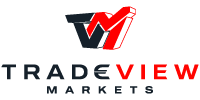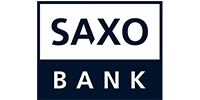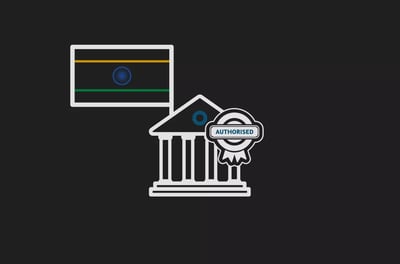Table Of Contents
- Best FOREX Brokers in India in 2026
- Top Tips for Selecting the Best FOREX Brokers in India
- Best FOREX Brokers and Platforms in India for 2026
- What is FOREX and Why Do We Need a Broker to Trade?
- How Do I Choose the Best FOREX Broker in India?
- Regulation and Licensing in India
- Leverage
- Stop Out and Margin
- Commissions and Fees
- Payments, Deposits, and Withdrawals in India
- FOREX Trading Customer Service
- Technical Aspects of the Broker’s Website
- Ask Other Traders on Our Network
- What Trading Platforms, Tools, and Features Should a Broker Offer?
- Which Assets and Instruments do the Best FOREX Brokers Offer?
- Which FOREX Broker has the Best Platform?
- Which FOREX Broker Charges the Lowest Fees?
- Which FOREX Broker Offers the Most CFDs?
- Which is the Best FOREX Broker with the Most Assets?
- Which is the Best FOREX Broker for Professionals?
- FOREX Trading Scams and How to Avoid Them
- Will Your Money Be Protected If Your Broker Becomes Insolvent?
- The Dos and Don’ts of FOREX Brokers
- Who is Arincen and What Do We Do?
- Conclusion
- Arincen’s Review Methodology
Best FOREX Broker in India for 2026
With many years of meticulous FOREX broker testing, Arincen stands out as a voice of authority. Our analyses, shaped by exhaustive data collection, are trusted by many. Each year, we gather 120 data points from more than 100 brokers. Our team of more than 20 people collaborate extensively to produce high-quality broker reviews like this one. For a detailed explanation of how we test brokers, navigate to the bottom of this article.
Note: We earn money by selling ads, placements, or through partnerships with some companies we have agreements with, learn more.
Best FOREX Brokers in India in 2026
| Company Name | Regulations | Minimum Deposit | Main Branch | |
|---|---|---|---|---|

ICM capital |
FCA | $200 | London | |

Tradeview |
SCA | $0 | New York, United States of America | |

XTB |
FCA | 0$ | United Kingdom | |

IG Group |
FCA | $250 | United Kingdom |

| Company Name | ICM capital |
| Regulations | FCA |
| Minimum Deposit | $200 |
| Main Branch | London |

| Company Name | Tradeview |
| Regulations | SCA |
| Minimum Deposit | $0 |
| Main Branch | New York, United States of America |

| Company Name | XTB |
| Regulations | FCA |
| Minimum Deposit | 0$ |
| Main Branch | United Kingdom |

| Company Name | IG Group |
| Regulations | FCA |
| Minimum Deposit | $250 |
| Main Branch | United Kingdom |
Top Tips for Selecting the Best FOREX Brokers in India
Best FOREX Brokers and Platforms in India for 2026
With so many choices out there, it's tough to select the right broker. In this case, we've done the work for you. Here is a summary of each broker according to specified characteristics, along with their pros and cons:
ICM - Capital 91.10: Best Deposit and Withdrawal Broker
Tradeview: 90.00: Trusted broker that offers very low trading costs as well as comprehensive financial literacy materials for its clients.
XTB - 85.55: Best Customer Service Broker
IG - 85.45: Best Regulations Broker plus Convenient Platform
Saxo Bank - 80.09: Excellent Private Trading Platform
CMC Markets - 80.07: More than 9,000 Assets
ThinkMarkets - 80.05: Aimed at the Audience of Traders

ICM capital
ICM Capital is a UK-origin broker that operates worldwide. The firm provides access to diverse trading products, including FOREX, commodities, futures, and indices. ICM offers a secure and efficient trading environment by combining advanced technology with deep liquidity. The company prides itself on delivering high liquidity, tight spreads, mobile trading, and advanced technical analysis.
Why we picked ICM Capital
For its robust regulatory framework and global oversight. Its presence across multiple jurisdictions demonstrates a genuine commitment to investor protection. This foundation makes it a dependable choice for both new and seasoned traders.
| Broker Evaluation | 9.11 |
| Regulations | FCA |
| Minimum Deposit | $200 |
| Islamic Account | yes |
| Payment Methods | Bank transfer, credit card, Electronic Banks, Crypto |
| Main Branch | London |
| Customer Service | Market Opening Hours |
| Demo Account | Yes |
| Trading Platforms | MT4, MT5, C TRADER, Web Platform |
Pros
-
Segregated client funds.
-
Regulated by the UK’s FCA.
-
Long trading history from 2009.
-
More than 300,000 traders, showing trust.
-
Decent funding options.
-
No swaps.
-
MetaTrader4 (MT4) desktop and mobile download.
-
Competitive spreads
-
ECN spreads starting from zero pips.
-
Fast execution and no-requotes.
Cons
-
No proprietary platform.
-
No US services.
-
Limited cryptocurrency offerings.
-
Inactivity fees which deter casual traders.

Tradeview
Tradeview Markets, the parent company of Tradeview Forex, was established in 2004 and is headquartered in the Cayman Islands. It is committed to offering a broad and accessible trading environment through ECN trading with direct access to dozens of banks and prime liquidity providers, ensuring tight spreads. The broker offers access to a wide range of financial instruments, including FOREX, indices, stocks, cryptocurrencies, and commodities.
Why we chose Tradeview
Our choice was influenced by this broker’s transparent fee structure and competitive pricing, with low spreads and clear cost disclosures. Traders benefit from predictable pricing without hidden charges. Cost efficiency is a crucial advantage in high-frequency and active trading environments.
| Broker Evaluation | 10.00 |
| Regulations | SCA |
| Minimum Deposit | $0 |
| Islamic Account | Yes |
| Payment Methods | Bank Transfer, Credit Cards, Crypto, Electronic banks, local deposits |
| Main Branch | New York, United States of America |
| Customer Service | |
| Demo Account | Yes |
| Trading Platforms | Metatrader 4, Metatrader 5, cTrader, API/FIX |
Pros
-
Variety of trading platforms, such as MT4, MT5, cTrader, and Currenex, catering to different trading preferences and strategies.
-
Provides ECN trading through its innovative Liquidity Connector®, granting direct access to over 50 banks and liquidity providers. Offers tight spreads starting from 0 pips.
-
A low minimum deposit of only $0 is required to start trading, making it accessible to a wide range of traders.
-
Offers a broad range of financial instruments, including FOREX, indices, stocks, cryptocurrencies, and commodities, thus catering to diverse trading interests.
-
Offers educational materials and a demo account, suitable for both beginners and experienced traders looking to refine their strategies.
-
Supports automated trading through the use of Expert Advisors (EA) on MT4 and MT5 platforms.
-
Regulated by CIMA, MFSA, and will soon be regulated by the UK’s Financial Conduct Authority (FCA).
-
Offers global customer service in multiple languages, catering to international traders.
-
Offers competitive leverage up to 400:1.
-
Charges no fees for deposits, making it cost-effective for traders to fund their accounts.
Cons
-
While regulated by CIMA and the MFSA, the broker is still in the final stages of becoming regulated by the tier-one FCA.
-
This means, unfortunately, that the broker currently has no way of offering compensation to affected traders if the broker goes bust. Of course, once FCA regulation is obtained, it will be mandatory for the broker to be part of the Financial Services Compensation Scheme (FSCS) where you could be entitled to compensation of up to £85,000.
-
Trades on the Innovative Liquidity Connector® account are subject to commission charges, which may add to trading costs.
-
Lacks a dedicated mobile app, relying instead on the mobile versions of its available trading platforms.
-
While offering high leverage up to 400:1 can be an advantage, it also introduces significant risks, especially for new traders.

XTB
XTB is a well-regarded broker known for its low costs, extensive asset selection, and advanced trading tools. Founded in 2002 in Poland, it has created a proprietary xStation 5 platform that offers robust features like real-time performance stats, sentiment analysis, and heat mapping. XTB's educational resources are comprehensive, catering to all skill levels with video tutorials, guides, and an accessible Trading Academy. XTB is an excellent choice for cost-conscious traders looking for diverse investment options and high-quality support.
Why we chose XTB
We chose this broker for its responsive and multilingual customer support, available across channels when assistance is needed most. Quick, professional responses reduce friction and build trader confidence. Support quality often reflects overall service reliability.
| Broker Evaluation | 8.55 |
| Regulations | FCA |
| Minimum Deposit | 0$ |
| Islamic Account | yes |
| Payment Methods | Bank transfer, Credit Card, Electronic Banks |
| Main Branch | United Kingdom |
| Customer Service | Market Opening Hours |
| Demo Account | Yes |
| Trading Platforms | MT4, xStation |
Pros
-
20-year history of operation.
-
Regulated by the FCA (UK) and CySEC in Cyprus.
-
Globally recognized, having won multiple awards.
-
Some of the lowest FOREX spreads in the market.
-
Offers protection for client accounts.
-
Emphasis on customer service.
-
Excellent support, as well as learning and research tools.
Cons
-
Does not accept US clients.
-
Number of instruments offered is average-sized.
-
No GSLO.
-
No back-testing or automated trading capabilities.
-
No social trading.

IG Group
IG Group is a highly regarded publicly traded broker that is licensed by 10 regulatory bodies, including the FCA, in its home base of the UK. It offers more than 17,000 financial assets to trade, including currencies, commodities, regular stocks, contracts for difference stocks, ETFs, indices, and cryptocurrencies. Further, it has its own state-of-the-art trading platform and offers a relatively low spread.
Why we chose IG Group
For its clear commitment to transparency and fair dealing, with open terms and client-friendly policies. Honest reporting builds trust and fosters long-term client relationships. We value brokers who prioritise clarity over complexity.
| Broker Evaluation | 8.54 |
| Regulations | FCA |
| Minimum Deposit | $250 |
| Islamic Account | yes |
| Payment Methods | Bank transfer - credit card - Electronic Banks |
| Main Branch | United Kingdom |
| Customer Service | Market Opening Hours |
| Demo Account | Yes |
| Trading Platforms | IG Trading, MT4,ProRealTime,L2 Dealer |
Pros
-
Intuitive mobile and tablet platforms.
-
Low spread costs.
-
Client education offering extensive research materials.
-
Regulated by many reputable authorities.
-
UK and EU clients get negative balance protection.
-
Financially stable and publicly-listed.
-
Rapid response to customer service queries.
-
Extensive range of trading assets.
-
Powerful social trading community.
Cons
-
U.S. clients are limited to FOREX trading only.
-
U.S. clients do not receive negative balance protection.
-
IG CFD prices can be high by industry standards.
-
Limited product portfolio of only CFD and options in many countries.

SAXO BANK
Saxo Bank is a well-established, low-risk broker based in Denmark that offers a wide range of trading services to sophisticated traders, institutions, and professional investors. It operates under strict regulatory oversight, ensuring a secure trading environment. The broker provides advanced trading platforms, including SaxoTraderPRO and SaxoTraderGO, catering to high-volume and professional traders with competitive spreads and access to over 71,000 instruments.
Why we chose Saxo Bank
For its comprehensive product range, spanning forex, commodities, indices, and popular CFDs. Such variety allows traders to build diversified portfolios within a single account. This breadth of markets supports evolving strategies and risk preferences.
| Broker Evaluation | 8.09 |
| Regulations | FCA |
| Minimum Deposit | $0 |
| Islamic Account | No |
| Payment Methods | Bank transfer, Credit Card |
| Main Branch | Copenhagen, Denmark |
| Customer Service | Market Opening Hours |
| Demo Account | Yes |
| Trading Platforms | SaxoTrader |
Pros
-
Extensive range of offerings.
-
Offers portfolio-based margin trading for pros.
-
Regulated by top regulators.
-
Excellent trading platforms.
-
Diverse account types.
-
Among the industry’s best research tools.
-
Offers protection for client accounts.
-
No inactivity fee.
-
No platform fees.
-
No minimum funding for entry-level accounts.
Cons
-
Some bonds, options, and futures fees are high.
-
With so many assets, fees can be confusing.
-
High minimum deposit for Platinum and VIP accounts.
-
Does not accept US clients.
-
No MT4 for traders who are used to the platform.
-
No GSLO.
-
No Islamic accounts.

CMC MARKETS
CMC Markets is a global CFD and FOREX broker established in 1989. It is regulated by several authorities globally. The company delivers a formidable offering for traders thanks to excellent pricing, nearly 12,000 tradable instruments, and its proprietary Next Generation trading platform. The platform comes packed with quality research, innovative trading tools, and powerful charting. CMC provides traders with access to an extensive range of CFDs and spread betting across several asset classes.
Why we chose CMC Markets
This broker’s risk management tools and flexible order types stood out to us, enabling traders to tailor positions according to market conditions. Features like stop losses, take profits, and conditional orders provide strategic control. These tools are essential for disciplined trading.
| Broker Evaluation | 8.07 |
| Regulations | FCA |
| Minimum Deposit | 0$ |
| Islamic Account | No |
| Payment Methods | Bank transfer, Credit Card, Electronic Banks |
| Main Branch | United Kingdom |
| Customer Service | Market Opening Hours |
| Demo Account | Yes |
| Trading Platforms | Proprietary Platform, MT4, Web Platform |
Pros
-
Extensive range of offerings.
-
Regulated by the FCA (UK) and other top regulators.
-
Low FOREX fees.
-
Emphasis on education and customer service.
-
Great Web and mobile platforms.
-
Offers protection for client accounts.
-
Research amenities are industry leading.
Cons
-
Does not accept US clients.
-
High CFD spreads for certain indices.
-
It only offers CFD trading, so traders cannot own the underlying asset.
-
Does not support deposits and withdrawals through electronic payments.

think markets
ThinkMarkets is a multi-regulated broker with offices around the globe. The firm is primarily a CFD broker, allowing you to trade across 4,000 instruments in FOREX, futures, commodities, indices, ETFs, crypto, and stocks. With an emphasis on superior customer service, ThinkMarkets maintains round-the-clock support in several languages. It provides different trading accounts suited to individual traders' needs. This includes zero-commission accounts and access to trading guides, analysis tools, and industry news feeds.
Why we chose ThinkMarkets
We selected this broker for its fast and flexible funding options, including bank transfers and card payments. Smooth deposits and withdrawals reduce administrative delays and support efficient capital management. Accessibility of funds is an often-overlooked but essential feature.
| Broker Evaluation | 8.05 |
| Regulations | FCA |
| Minimum Deposit | $0 |
| Islamic Account | Yes |
| Payment Methods | Bank transfer - credit card - Electronic Banks - Crypto |
| Main Branch | Australia |
| Customer Service | Market Opening Hours |
| Demo Account | Yes |
| Trading Platforms | Proprietary Platform, Web Platform, MT4, MT5 |
Pros
-
Beginner assistance is offered through round-the-clock channels.
-
Spreads are as low as 0.0 pips.
-
Round-the-clock expert customer service.
-
CFD shares and indices come at no extra fee.
-
Zero broker fees for FOREX trading.
-
Technical analysis and quality market information.
Cons
-
No binary options are offered.
-
Commissions are charged for two account types.
-
Range of tradeable assets is not as wide as some competitors.
-
No US clients allowed.
There is a high degree of risk involved in trading securities like FOREX, or CFDs, which are highly complex instruments. As a trader, you could be exposed to excessive leverage, questionable broker tactics, market volatility, and limited regulatory protection. Despite your best trading techniques and risk management strategies, your efforts may not be profitable, and you could suffer losses.
What is FOREX and Why Do We Need a Broker to Trade?
The foreign exchange market is a decentralized marketplace where global currencies are bought and sold. Currency trading is conducted electronically over the counter (OTC). This means that all transactions occur via computer networks between traders all over the world rather than on one centralized exchange. As a retail trader, the best FOREX brokers out there allow you to take part in this thriving global marketplace that was once the sole domain of large institutions. Thanks to the digital age, today, you can claim your piece of the action.The FOREX market operates 24 hours a day and five days a week (Monday to Friday), except for international holidays. The FOREX market is the largest financial market in the world. The best FOREX brokers in India play a key role in this marketplace by enabling clients to buy and sell through a trading platform. Most trading platforms are accessible in web and mobile format.
How Do I Choose the Best FOREX Broker in India?
Choosing the right broker means balancing cost, reliability, and market access. Compare trading fees, asset coverage, and leverage conditions across regulated platforms. Study execution speed, slippage history, and available analytical tools. A serious trader picks a broker that performs well under real market pressure, not just on paper.

Regulation and Licensing in India
India has a well-developed regulatory framework. Financial markets in the country are regulated first and foremost by the Ministry of Finance, which works in conjunction with the Securities and Exchange Board of India (SEBI) and the Reserve Bank of India (RBI).
Policies relating to the orderly growth and development of the securities markets are formulated under the capital markets division of the Ministry of Finance. This ministry seeks to protect the interests of investors through institutional reforms in the securities markets, building regulatory and market institutions, and providing efficient and strong legislation.
FOREX brokers in India must be registered with the SEBI, which is a regulatory authority whose primary goal is to promote and regulate the Indian securities markets. All financial intermediaries, whether domestic or foreign, must be registered with the SEBI.
The RBI regulates financial markets and systems through different legislation. In the case of FOREX, it oversees regulated FOREX brokers through the Foreign Exchange Management Act, which is designed to closely manage foreign exchange inflows and outflows.
While the SEBI and RBI call the shots in India, there are other major regulators around the world. If you want to read more about some of the best-regarded regulators, read our article on regulation here. As we have said, as someone resident in India, it’s enough that your broker is regulated by the SEBI and RBI, as long as they are domiciled in India. If you choose an overseas-domiciled broker, you should select one that is regulated by a top regulator.
Choosing a well-regulated broker isn't merely a matter of preference—it's a protective measure. When a broker is under the watch of a regulator, it undergoes stringent assessments to ensure transparency, fair trading practices, and financial security. Opting for an unregulated broker brings with it significant risks.
To ensure that your broker is legit, you can follow these steps:
Ask if the broker is licensed to sell you FOREX
Check if the broker is registered with the SEBI
Ask if your broker is part of a compensation scheme
Check your statements regularly to ensure that everything is above board.
Remember that it's important to comply with all applicable requirements, including any self-regulatory organizations to which brokers belong, and not just those mentioned here.
Choose a broker under the watch of a trusted regulatory authority who is renowned for their rigorous oversight. There's no obligation to opt for an overseas regulator; reputable brokers also operate within your own jurisdiction. To confirm if your broker is registered with a regulator, navigate to the regulator’s official website.
Leverage
Leverage is a financial tool that allows you to gain access to much larger trading positions than you would have been able to with your own capital. Depending on the regulator under which your broker works, you will encounter different policies relative to leverage. Key regulators have implemented specific rules to limit the leverage offered to retail traders as a means of consumer protection.
Here are selected leverage rules according to some important regulators:
SEBI, India:
The maximum leverage for trading FOREX in India is nominally restricted to 500:1. That said, the authority has capped available leverage for major currency pairs at 30:1 and for non-major currency pairs at 20:1. Trading on margin with the Indian Rupee as the base currency is not allowed. Therefore, traders cannot use INR to borrow funds for trading when it is the base currency.
Financial Conduct Authority (FCA), UK:
30:1 for major currency pairs
20:1 for non-major currency pairs, gold and major indices
10:1 for commodities (excluding gold) and non-major equity indices
5:1 for individual equities and other reference values
2:1 for cryptocurrencies
These limits are in place to reduce the risk of significant losses for retail traders.
Swiss Financial Market Supervisory Authority (FINMA), Switzerland:
FINMA has not set specific leverage limits. However, Swiss brokers must adhere to rigorous capital and risk management requirements, ensuring they don't offer excessively high leverage that could endanger their solvency or their clients' funds.
It's worth noting that these rules generally apply to retail clients. Professional or institutional clients might have access to different levels of leverage, depending on the regulatory environment and the broker's policies. As we can see, responsible regulators closely monitor leverage levels. Leverage is a double-edged sword because you can make a lot of money, but you can just as easily suffer heavy losses.
Retail traders should be cautious when trading with high leverage due to the significant risks involved. While leverage can increase gains, it can also magnify losses. You should be careful when trading with high leverage, that’s why you need the right knowledge and experience to handle the highs and lows that come with this form of trading.
Stop Out and Margin
Perhaps more than any other regulator, SEBI is always actively trying to reduce risks for retail investors. Recent proposals have suggested linking the amount of equity derivatives Indian traders may trade to their net worth. This level of scrutiny arises because the regulator is concerned smaller players could suffer catastrophic losses in volatile derivatives markets. Already, nine out of every 10 retail traders in India lose money.
SEBI closely regulates the use of margin and stop-outs for retail traders in the country. Traders dealing in currencies and intraday trading must keep a 100% margin in the bank account according to a concept called Value at Risk (VaR).
VaR is defined for each asset. This 100% margin is based on the VaR margin. What does this mean? Simply that you must keep the full amount of capital in your account that is equal to the size of the trade you are placing.
Then, the maximum leverage a broker can offer for intraday trading would be 20% of VaR, effectively 20% of your 100%.
SEBI has also placed restrictions on the use of intraday profits made by traders to carry out additional trading activities on that same day. The profits can only be used 2 days later for trading activities. Traders must fulfill the minimum margin requirement to carry out intraday trading.
It's worth noting that while stop-out procedures are meant to protect you from negative balances, they can lead to significant losses in volatile markets if positions are closed automatically, especially if the market quickly reverses after the stop out. In the case of India, as soon as your account goes below 100% of the VaR, stop out is initiated and you cannot place the trade.
As such, using protective measures, like stop-loss orders and not over-leveraging, is always a good idea. Additionally, the specific percentage and the order in which positions are closed can vary among brokers, especially in a tightly controlled market like India, so you need to be aware of your broker's policy on stop-out levels.
Commissions and Fees
Trading fees are not always easy to monitor. Be sure to check how these fees compare with other brokers:
Spreads: In FOREX trading, a spread is the difference between the price at which a trader can buy (ask) and the price at which they can sell (bid) a currency pair. The spread can be categorized into two main types: fixed and variable.
Fixed Spreads: As the name suggests, fixed spreads remain constant regardless of market conditions. They don't change during the day and are generally set by the broker. Fixed spreads are preferred by some traders because they provide predictability, especially during times of high market volatility.
Variable Spreads: These spreads fluctuate based on market conditions. During times of low liquidity or high volatility, variable spreads can widen. However, during times of high liquidity and normal market conditions, the spreads can be very narrow. This type of spread is a direct reflection of market supply and demand.
Why do they differ?
The main reason they differ is due to their reaction to market conditions. Fixed spreads don't react to the market, giving traders a consistent spread cost. On the other hand, variable spreads can offer lower costs during normal market conditions but can widen and become more expensive during volatile times.
Example of Good vs. Worse Spreads for EUR/USD:
A good spread for the EUR/USD currency pair might be around 1.4 pips. This means that if the bid price is 1.1000, the ask price would be 1.10014.
A worse spread could be significantly higher, let's say 3.0 pips or more. In this scenario, if the bid price is 1.1000, the ask price would be 1.1003.
Traders always prefer narrower spreads because the cost of entering and exiting a trade is lower. However, it's essential to consider other factors, like the broker's reliability, platform features, and overall trading conditions when choosing between brokers offering different spreads. This article explains more about this important concept.
Commission: This is nothing more than the service charge that brokers require for carrying out transactions on behalf of their clients.
Rollover fees: When you leave a trade open overnight, the broker normally charges a rollover fee for the facility of holding your trade open for that period. This is because they assume the risk of the market changing adversely.
Withdrawal and Deposit Fees: Some platforms might charge fees for depositing or withdrawing funds. Pay attention to this. It's important to be aware of these and any associated limits or conditions.
Subscription or Inactivity Fees: Certain trading platforms have monthly charges or fees for inactive accounts. Ensure you're aware of these potential costs.
To assess trading costs accurately, the Arincen research team examined broker pricing across multiple sources, combining published fee schedules with observed trading conditions. Our analysis focuses on spreads, commissions, and additional charges that impact traders in practice. You can see the consolidated findings in the table that follows.







| Spread | Commission | Swap | Islamic Account | |
| Currencies | Starting from 1.3 Pips | 0$ | No | Available |
| Stocks | Starting from 18 Pips | 0$ | Yes | Unavailable |
| Commodities | Starting from 2.3 Pips | 0$ | No | Available |
| Indices | Starting from 4 Pips | 0$ | Yes | Unavailable |
Payments, Deposits, and Withdrawals in India
Different brokers have their own rules and limits on the size of the deposits, withdrawals, and lots that traders can process. Most of the best FOREX brokers in India offer all the relevant national payment methods, such as electronic funds transfers and credit or debit cards. E-wallets are a convenient way for young and tech-savvy traders to transact online. Common methods, like Skrill, Neteller, Paypal, and FasaPay, are supported with ease.
Our pricing review draws on Arincen’s independent research, where we analysed broker cost structures using both advertized rates and real-world trading data. By comparing spreads, commissions, and related fees, we aimed to reflect what traders are likely to experience. The outcome of this assessment is displayed in the table below.







| Method | Credit Card | Wire Transfer | Skrill | Neteller | Cryptocurrency | PayPal |
| Deposit fee | 0$ | $0 + Bank commission | 1.9% | 2.5% | Unavailable | 3.75% |
| Withdrawal fee | 0$ | $15 | 1% | $0 | Unavailable | 2% |
FOREX Trading Customer Service
You must pick a brokerage firm that can provide good customer support around the clock. This most notably includes the company representatives being easy to reach, fast, and polite, which in turn will spare you from having to worry about problems later. The best FOREX brokers in India for beginners will be able to provide you with the following:
Quick resolution of issues
Educational support
Assistance with queries during volatile markets
Account security
Customized advice (although not all customer service desks offer this)
Technical assistance
Regulatory compliance queries.
Based on in-house analysis by the Arincen team, we reviewed pricing data from both official broker websites and live market conditions. This included spreads, commissions, and trading fees observed in real use. The results of that comparison are summarized in the table below.







| Live Chat | Phone | |||
| Available | Available | Available | Available | Available |
| Quick response | Quick response | Fast | Fast | Fast |
Technical Aspects of the Broker’s Website
When it comes to sharing sensitive personal information online, such as a credit card, cyber security is paramount. You should, therefore, always look out for SSL certification and two-factor authentication (especially when registering with a new site). Remember to use a strong password that nobody can access.
Ask Other Traders on Our Network
Arincen has created a collaborative environment where traders of all experience levels come to meet. After all, Arincen’s goal is to simplify the world of trading. Our website provides a range of powerful tools, like our market-leading signals, rolling news, and a cooperative community where traders of all levels can learn from each other.
What Trading Platforms, Tools, and Features Should a Broker Offer?
When choosing a trading platform, you should consider a range of features that cater to both novice and seasoned traders. Here are some elements to keep in mind:
Technical analysis tools: The platform should have robust technical indicators to help traders make informed decisions.
Customization and user interface: Traders should be able to customize the platform according to their preferences, allowing them to set up their trading environment precisely how they want. We find that the products from the MetaTrader suite, especially MT4, offer excellent features for this purpose.
Platform accessibility: A top-notch trading platform should offer flexibility in terms of access, whether it's web-based or a downloadable application.
Risk-management tools: Trading inherently comes with risks, and a high-quality platform should provide instruments that allow traders to set stop-losses, take-profits, and other crucial order types.
Performance and reliability: Beginner traders especially need a platform that operates seamlessly with minimal downtimes or glitches. This ensures a smooth trading journey, allowing them to focus on market movements rather than technical hiccups.
Learning and educational resources: The best brokers will offer platforms that are not only intuitive, but also come with tutorials, guides, and responsive customer support to assist traders in navigating any challenges they might face.
Shariah-compliant accounts: Some Indian traders are practising Muslims. If this is you, there should be access to a swap-free account that is consistent with the dictates of Shariah financial law.
To choose the perfect trading platform, here’s some advice:
Determine your trading style and needs.
Research different platforms and compare their features.
Test the platforms with a demo account to see which one suits you best.
Choose a platform that offers the features you need and is user-friendly.
Ensure that the platform is reliable and has a good reputation in the industry.
Remember that the trading platform you choose can have a significant impact on your trading success, so it's important to choose wisely.
Recommended Brokers
Tip: Invest in Your knowledge
For every aspiring retail trader, knowledge is key to a successful trading journey. We invite you to delve into Arincen's goldmine of insights, strategies, and expert analyses. Whether you're just embarking on your trading venture or trying to level up your trading game, our resources are designed to give you all the information you need. Visit our educational resources here.
Which Assets and Instruments do the Best FOREX Brokers Offer?
Online trading offers a wide range of financial instruments, each with its own opportunities and challenges. Here are some of the most common:
FOREX: this is what you are here for. By now, you will know that FOREX trading involves buying and selling currencies from different countries on the foreign exchange market to make a profit. This is done through a broker with an online platform, like MT4 or MT5. FOREX brokers provide tools to traders for executing buy-and-sell orders in the currency markets.
CFDs: CFDs allow traders to speculate on the future market movements of an underlying asset without actually owning or taking delivery of the asset. CFDs are traded on margin, meaning the broker allows investors to borrow money to increase leverage or the size of the position to amplify gains.
Cryptocurrencies: These digital assets are of high interest to traders in India, even if regulators like the RBI are continually trying to introduce regulations to curb the unmanaged trading of these highly volatile assets.
Equities or stocks: These represent ownership in a company and trading them involves buying and selling shares of publicly traded companies.
Commodities: Items of value, such as gold, oil, wheat, and coffee, can be traded through a broker or online trading platform.
Indices: These are a measure of the performance of a group of stocks or other assets. Trading indices involve buying and selling a basket of stocks or other assets that make up the index. Some key international indices include the UK 250 and the Germany 40.
Bonds: These are debt securities issued by companies or governments to raise capital. When you buy a bond, you are essentially lending money to the issuer, who promises to pay you back with interest later.
Options: Options are contracts that give the buyer the right, but not the obligation, to buy or sell an underlying asset at a predetermined price and time.
Futures: These types of contracts obligate the buyer to purchase an underlying asset at a predetermined price and time in the future. This is done through a broker or online trading platform.
To start trading, take note of these vital steps:
Determine which financial instruments you want to trade
Research different brokers and trading platforms
Open a trading account with a reputable broker
Fund your account and start trading
Remember that trading involves risks, and it's important to have a solid understanding of the financial instruments you're trading and the risks that come with the territory.
As part of our evaluation process, the Arincen team gathered and cross-checked broker pricing from official documentation and live trading environments. This approach allowed us to compare spreads, commissions, and fees under actual market conditions. The breakdown of our findings is presented in the table that follows.
| Brokers | Currency pairs | Stocks | Indices | Commodities | Crypto | ETFs |
| Tradview | 80 Pairs | 5000 Shares | 10 Indices | 10 Commodity | 30 Coins | Unavailable |
| ICM Capital | 67 Pairs | 89 Shares | 17 Indices | 12 Commodity | 6 Coins | Unavailable |
| XTB | 57 Pairs | 1848 Shares | 36 Indices | 22 Commodity | 22 Coins | 135 ETFs |
| IG | 81 Pairs | 21714 Shares | 49 Indices | 39 Commodity | 11 Coins | 12858 ETFs |
| Saxo Bank | 320 Pairs | 22000 Shares | 49 Indices | 39 Commodity | 9 Coins | 6700 ETFs |
| CMC Markets | 330 Pairs | 8000 Shares | 80 Indices | 100 Commodity | 18 Coins | 200 ETFs |
| Think Markets | 46 Pairs | 3750 Shares | 15 Indices | 11 Commodity | 21 Coins | 350 ETFs |
Which FOREX Broker has the Best Platform?
Which FOREX Broker Charges the Lowest Fees?
You will find that ICM’s ECN account comes with the lowest fees. No matter your trading experience level, there is a pricing tier that caters to your needs.
Which FOREX Broker Offers the Most CFDs?
Which is the Best FOREX Broker with the Most Assets?
Which is the Best FOREX Broker for Professionals?
FOREX Trading Scams and How to Avoid Them
Trading with an unregulated broker can have dire consequences. Regulated brokers must comply with strict rules to protect your interests. Unregulated brokers may engage in fraudulent activities, such as misappropriating client funds, and may not have adequate measures in place to protect your data. For a list of the best regulators, read our article here.
Will Your Money Be Protected If Your Broker Becomes Insolvent?
The Investor Education and Protection Fund (IEPF) was established by the Government of India in 2016 with the main objective of promoting awareness among investors. The IEPF also carries out practical tasks, such as facilitating refunds of shares and unclaimed dividends and matured deposits/debentures to affected investors.
The Investor Education and Protection Fund Authority is responsible for running the IEPF and it works closely with the Ministry of Commerce to adjudicate on a case-by- case basis that investor claims are valid. Therefore, it is not a guarantee that investors affected by broker insolvency will be refunded. This underscores the need to work with well-regulated entities.
The Dos and Don’ts of FOREX Brokers
- The FOREX brokerage firm cannot recommend a buy or sell:
- The FOREX brokerage firm must not provide price or market expectations (rise/fall);
- The FOREX firm cannot control your financial dealings (deposit/withdrawal);
- The FOREX brokerage firm should not “manage” your portfolio under any circumstance;
- The FOREX brokerage firm cannot grant a client a bonus unless clear terms are guiding it beforehand.
- The brokerage firm must not use bank accounts not under its name; and
- FOREX brokerage firms cannot have or offer the service of account managers.
Recommended Brokers
Who is Arincen and What Do We Do?
Conclusion
Arincen’s Review Methodology
The team at Arincen collected more than 120 pieces of data covering more than 100 licensed FOREX companies. Data collection was done in three ways:
Companies’ websites.
Other Websites that have ranked FOREX companies.
A survey questionnaire (referred to here as Survey “1”) was sent to the companies invited to participate in the exercise. We have identified 13 criteria for our assessment, each containing several aspects and carrying its own relative weight. These include licensing, deposits and withdrawals, number of assets, etc.
Afterwards, we validated the data by:
Registering with FOREX companies as a secret shopper and/or as Arincen.
Survey number “2,” in which we asked these companies’ customers for important feedback and experience.
The next step saw us evaluate and rank each company, relying on the hard work of 15 Arincen employees. We were very careful to ensure the most accurate assessment possible, including considering different languages, as well as the various mobile app operating systems, e.g., Apple, Samsung, etc.
To add credibility to our research project, we sent a final and third survey (referred to here as Survey “3”) to enable participating FOREX companies to evaluate our research and whether it accurately reflects the realities on the ground. We were fortunate enough to receive a mark of 9.9 out of 10! We have kept to a minimum the margin of error, which stood at a measly 1%. To learn more about how we came up with the evaluation, please click here.
Forex Risk Disclaimer
Trading foreign exchange on margin carries a high level of risk, and may not be suitable for all investors. The high degree of leverage can work against you as well as for you. Before deciding to trade foreign exchange you should carefully consider your investment objectives, level of experience, and risk appetite. The possibility exists that you could sustain a loss of some or all of your initial investment and therefore you should not invest money that you cannot afford to lose. You should be aware of all the risks associated with foreign exchange trading, and seek advice from an independent financial advisor if you have any doubts.
FAQ
Yes, trading FOREX trading is legal in India. To operate in the country, the brokerage firm must ensure it is licensed and regulated by the appropriate authorities before it can begin to trade. Indeed, the RBI Website indicates that investors can undertake FOREX transactions only with "authorized persons and for permitted purposes.”
The FOREX market is a place where global currencies are bought and sold. It is a large and active marketplace that requires technologically superior tools if you are to participate as a retail trader. The market operates 24 hours a day and five days a week (Monday through Friday), except international holidays.
FOREX trading involves buying and selling different worldwide currencies for a profit. Retail traders select a currency pair and, in anticipation of market-driven changes in value, wait for the right moment to make a sale for a profit.
FOREX brokers charge any combination of commissions, spreads, and financing fees. Brokers can either charge a spread (the difference between the buy and sell price of a currency pair) and include their facility fee in the spread, or they can charge only a market rate spread and levy a commission per trade outside the spread. Financing fees come into play if you hold your position overnight. You must pay a financing cost for the benefit of keeping your positions open for an extended time.
Reliable and knowledgeable customer service is crucial to FOREX traders as they require immediate assistance in a rapidly-moving marketplace like FOREX. Customer service staff members should be always accessible and must be well-trained to respond with speed and accuracy in times of difficulty.
FOREX trading is taxable in India. Proceeds from this activity must be taxed under “income from other sources” at the rate applicable to individuals. We recommend you speak to a tax expert to understand the full requirements.













